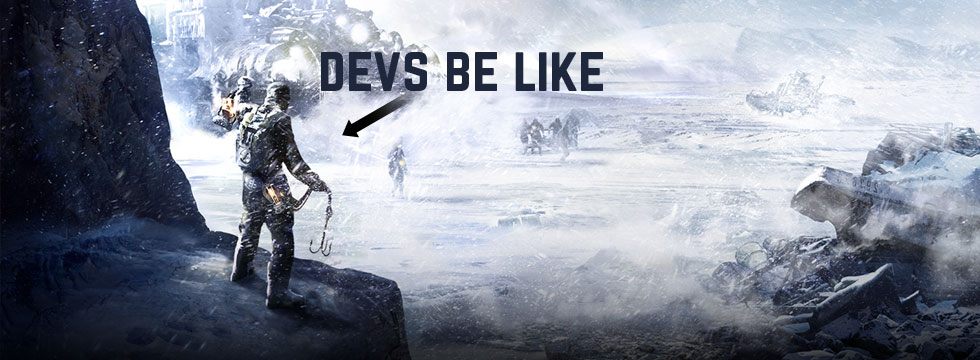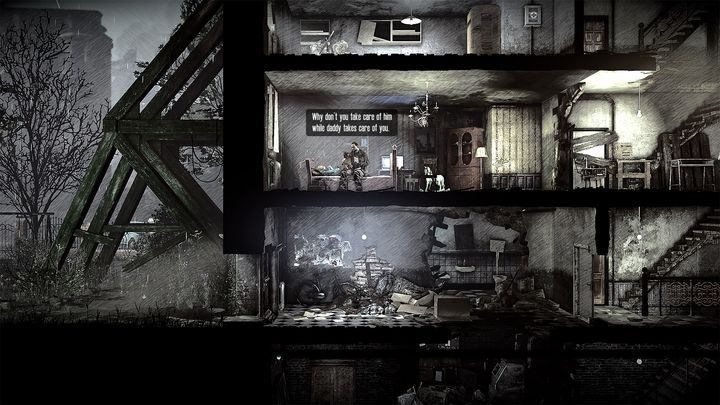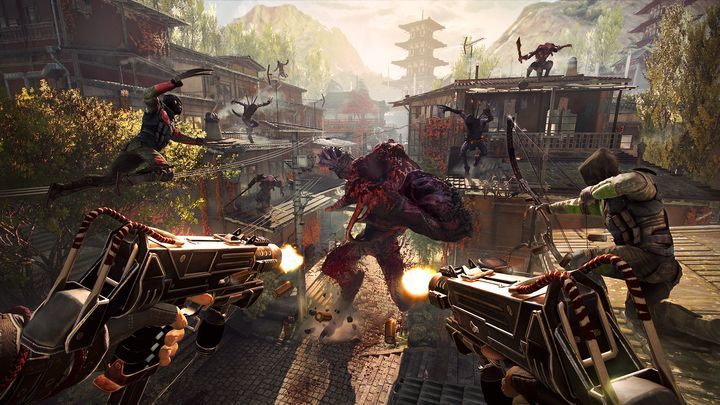A lesson for the future. Gamedev in times of pandemic

- Gamedev in Times of Pandemic – Developing AAAs on Couch
- “We've wrapped it up in three days”
- Developing games, making dinner
- The Big Short – recession vs. gaming
- A lesson for the future
A lesson for the future
Most countries are gearing up for a huge, albeit gradual, thawing of the economy. We're certainly not in position to discuss whether the shutdown made sense or not – what's certain however, is that you can't throw the baby out with the bathwater.
We have to try to maintain the economy in this sort of pharmaceutical coma, then try to go back to normalcy – otherwise, we won't even have an economy to save. We will be making small steps towards "business as usual." Whether we will get there, I have no idea.
Pawel Miechowski, 11 bit studios

What will business as usual look like? Kuba Stokalski brought up covid-19 passports – documents that allow people to work and move freely. This makes for some fertile ground for conspiracy theories and fans of Orwell's 1984 – welcome to the dystopia. I wonder how my job will change.
Most trips abroad and industry events are networking opportunities. The journalists, developers and publishers from all over the world will not quickly forget that they had just spent several days at home, washing their hands 30 times a day.
We don't know what the business will look like – we do know that we won't see large industry events for some time. How does this affect the dev studios – did the cancellation of E3 thwart any plans?
No; it's a matter of utilizing the available environment. E3 was convenient because press from all over the world was there, and all eyes were on the E3. If there's no E3, our attention should be directed elsewhere, as should our resources. [ ... ] Besides, remember that the E3 has always been terribly expensive; the tens of thousands of dollars spent on a small booth there could be spent on other means of reaching gamers, so it's just a matter of some creativity. But I don't think it's delaying anything. You just have to think about how you can reach players without E3.
Pawel Miechowski, 11 bit studios
Remember the "digital or physical" disputes? The uncertainty and initial aversion to the new mode of distribution? Well, that's precisely what's saving the industry from the gigantic slump right now.

The pandemic has created a new reality in which our industry needs to recover as quickly as possible and adapt to the current demands of players. The studios themselves have been forced to modify strategies of promoting, advertising and releasing games. Now that direct contact with fans and business partners is not possible, shoulders have to be rubbed digitally. Digital distribution will dominate sales even more. Likewise, marketing and online campaigns will have to fill the void left by large fairs.
Joanna Staniszewska, Flying Wild Hog
HOW ARE NEW GAMES ANNOUNCED, THEN?
Well, the industry has been quick to adapt, taking all such activities online – instead of taking the stage, developers sit comfortably in their living rooms, telling us all about their new games.
The cure for any crisis: empathy
The industry that delivers so much joy on a daily basis also has its darker sides. Crunch, for example, no matter how justified, will always mean the company cares more about money and deadlines than the wellbeing of the people who make it. So it's really nice to see the studios and corporations acting with responsibility and compassion in time of crisis. Flying Wild Hog, for example, hosts a "HOME HOG PUB" – a virtual pub where employees can meet and chat in the evening, forgetting the everyday problems.
It's important to forget about the work and recharge batteries; teasing colleagues about the size of their beards or just charring about the games we're currently playing – it all actually shows the underlining concern for our colleagues and friends.
Simple initiatives like that are what actually makes it possible to function normally. The epidemics and all, but daily routines are of great importance.
Despite the circumstances, we try to function normally and give a sense of normalcy to our colleagues. For example, on April 1, we all celebrated the 11th birthday of the Flying Wild Hog together online.
We all react differently to what's been going on since the beginning of the year. We have different beliefs and temperaments, different characters and different resilience. We also all need money. After talking to Flying Wild Hog, 11 bit studios and Destructive Creations, I'm a little less concerned about our industry. While the problems are palpable and there has been a lot of "ifs" in our discussion, I think we can be optimistic. If you need reassurance, here's what Joanna Staniszewska from Flying Wild Hog told me:
Despite the difficult conditions, we're not slowing down and continue to create our games, and we want to announce at least two titles this year – of course, adapting to the new trends prevailing in terms of promotion of games.
Joanna Staniszewska, Flying Wild Hog
So, instead of the end of the world, we can wait for new games.

The series of interviews and reportages is prepared in cooperation with Krakow Technology Park, the organizer of Digital Dragons – a key conference for the game industry in Europe, supporting Polish game developers for more than 10 years.




